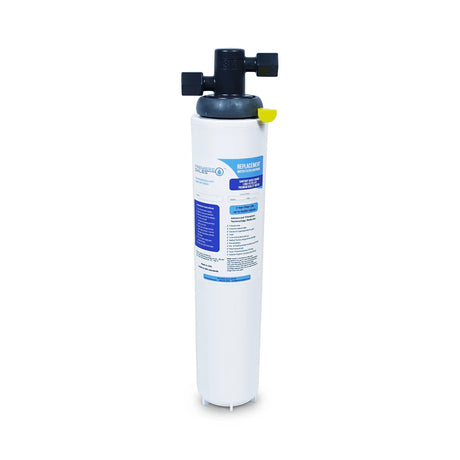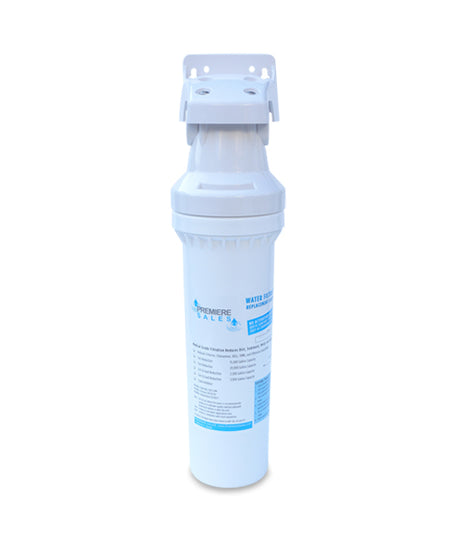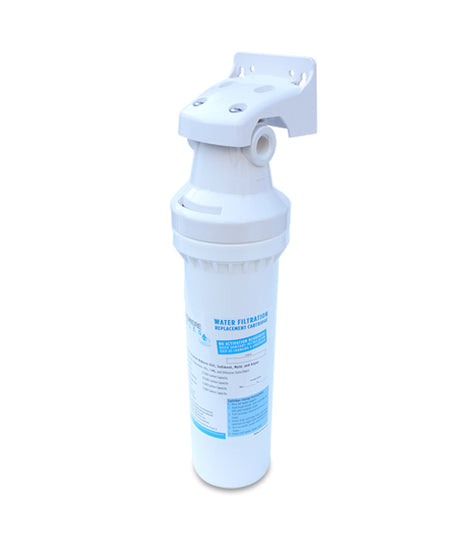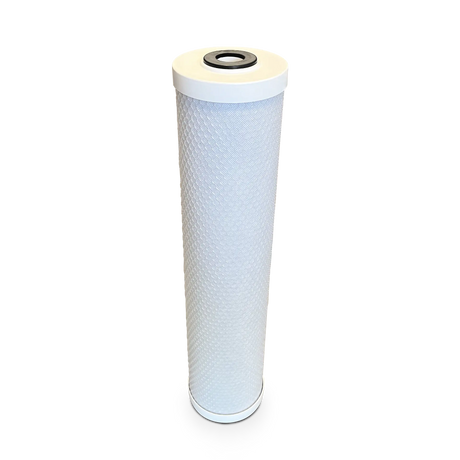Carbon Filters for Water: Simple Guide to How They Work and What They Remove
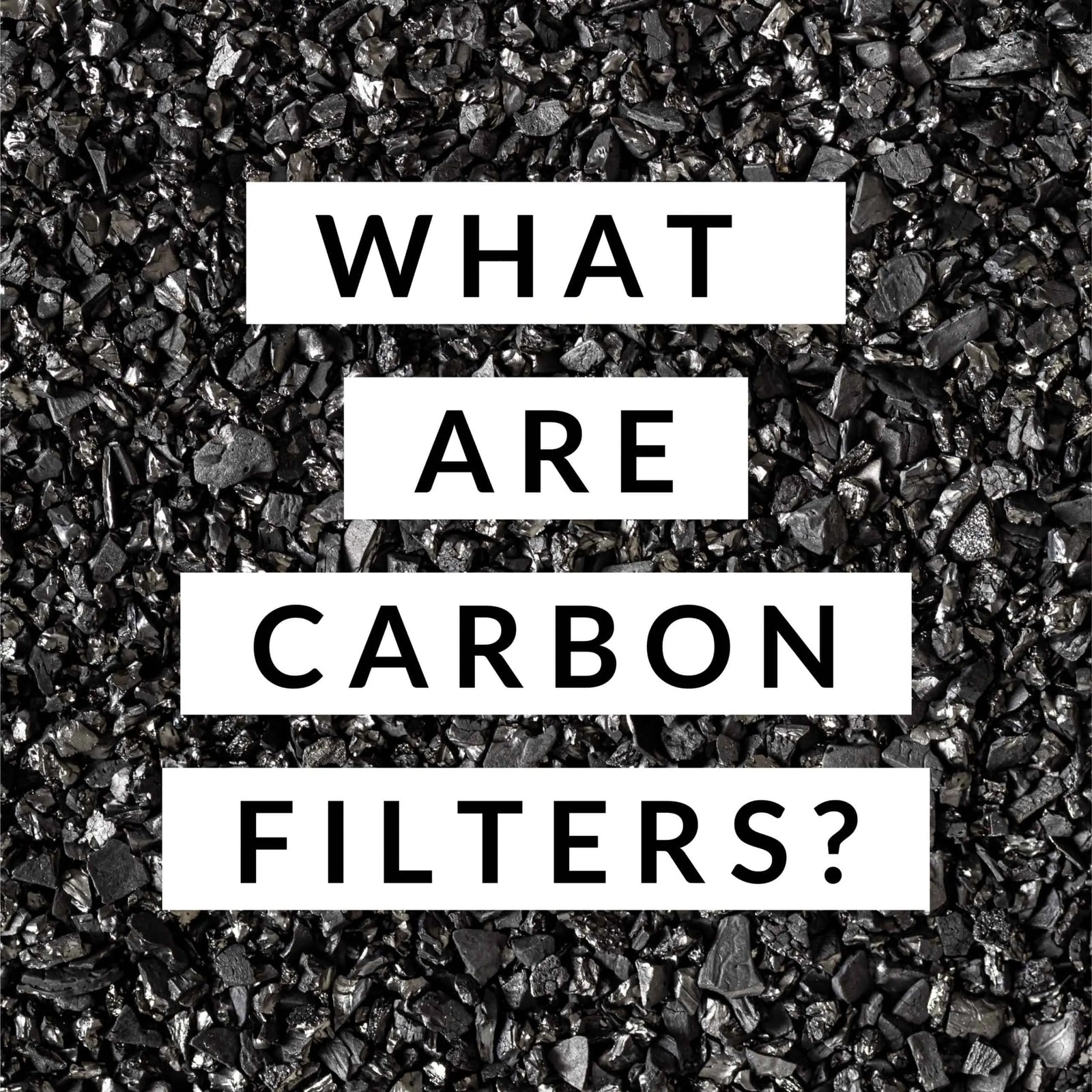
Introduction to Carbon Filters
Carbon filters are extremely effective in removing contaminants from water. They can remove or reduce:
- Bad tastes and unpleasant odors
- Chlorine and chloramines
- Volatile Organic Compounds (VOCs)
- Lead and other heavy metals
- Pesticides and herbicides
- Gaseous pollutants
Due to its high effectiveness, carbon is the most popular filter media used in water treatment. Almost every type of water filtration system uses carbon filtration in some way.
What Are Carbon Filters and How Do They Work?
Carbon filters are made by grinding up carbon from high-carbon organic materials such as:
- Coconut shells (most common)
- Bituminous coal
- Peat
- Other raw organic materials
The production process involves two main steps:
- Heating the organic material to an extremely high temperature without oxygen to bake off impurities.
- Activating the carbon with even hotter steam to create pores and cracks in the carbon surface, giving it high contaminant-holding capabilities.
Types of Carbon Filters
There are two main styles of carbon filters:
- Granular Activated Carbon (GAC): Loose carbon granules
- Carbon Block: Compressed particles of carbon
Additionally, there are two types of activated carbon filter media:
- Activated carbon
- Catalytic activated carbon
What Contaminants Do Carbon Filters Remove?
Carbon filters have high adsorption properties and can potentially remove and reduce a wide variety of organic compounds and chemicals. They are particularly effective at removing chlorine and improving taste and odor.
Some contaminants that carbon filters may remove or reduce include:
- Acetone, alcohols, amyl acetate, benzene
- Bleach, chlorine, chloramines, chloroform
- Dirt and dyes
- Heavy metals and lead
- Pesticides and herbicides
- Hydrogen sulfide
- Volatile organic compounds (VOCs)
Important Note: Carbon filters are not effective at removing dissolved minerals, salts, or other dissolved inorganic substances. For these contaminants, reverse osmosis is needed.
Granular Activated Carbon (GAC) Water Filters
What Is a GAC Filter and How Does It Work?
A granular activated carbon (GAC) filter contains loose pieces of carbon granules. These filters can be used in:
- Whole-house (point of entry) systems
- Point-of-use water filter systems
GAC filters work through adsorption, where the surface of the activated carbon attracts and holds contaminants. Key features include:
- Longer water contact time with granules improves adsorption
- Higher flow rate than carbon block filters due to looser medium
- Typically used to improve taste and odor by removing chlorine, hydrogen sulfide, and other offensive tastes and odors
Carbon Block Water Filters
What Is a Carbon Block Filter and How Does It Work?
A carbon block filter contains compressed pieces of carbon granules, forming a solid block. These filters are used in:
- Residential whole-house systems
- Commercial water treatment
- Point-of-use filtration systems
Key features of carbon block filters:
- Micron rating depends on the degree of compression (e.g., 0.5-micron vs. 5-micron)
- Lower flow rates compared to GAC filters due to compact nature
- Work through both adsorption and mechanical filtration
- A standard 10-inch cartridge can have a surface area equivalent to 160 acres
Maintaining Carbon Water Filters
How Often Should You Change Carbon Water Filters?
The lifespan of a carbon filter depends on several factors:
- Quality of the filter
- Level of water contamination
- Amount of water used
Typically, a carbon filter should be replaced every 3 months to 1 year. With carbon block filters, you'll notice a drop in water flow when the filter is full and needs replacement. Always consult the manufacturer for specific guidelines.
Top-Rated Carbon Water Filters for Superior Filtration
Best Catalytic Carbon Home Drinking Water Filtration System
The Premiere PS-1HFC Catalytic Carbon Water Filter offers:
- High-flow, under-sink system
- Connects to existing faucet
- Pharmaceutical-grade filtration
- 2-year or 10,000-gallon filter life
- Reduces chlorine, chloramine, lead, VOCs, bacteria, parasitic cysts, asbestos, and particles as small as 0.2 microns
Home Drinking Water System with Carbon Block Filter
The Premiere EC-700 Home Drinking Water Filtration System features:
- 2,500-gallon filter life
- Eliminates offensive tastes and odors
- Protects against lead, chlorine, cysts, algae, mold, THMs, VOCs
- 0.5-micron filtration
- 1.75 GPM flow rate
Replacement Carbon Filters
Activated Carbon Block Replacement Filters
We offer 5-micron activated carbon block cartridges in various sizes:
- 2.5" x 10" - AMF-CBC5
- 4.5" x 10" - PS-4510CB
- 2.5" x 20" - AMF-CBC20/5
- 4.5" x 20" - PS-4520CB
Activated Carbon Block Replacement Filters with Scale Inhibitor
We also offer 5-micron activated carbon block cartridges with a scale inhibitor:
- 2.5" x 10" - AMF-CBCS
- 4.5" x 10" - BG-10CS
- 2.5" x 20" - AMF-CBCS20/5
- 4.5" x 20" - BG-20CS


